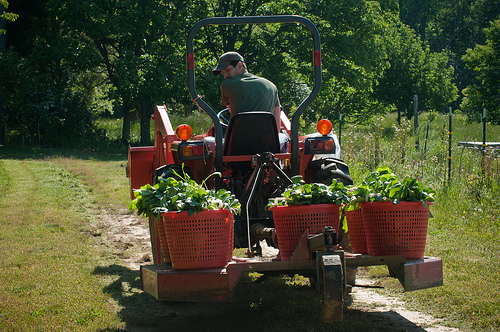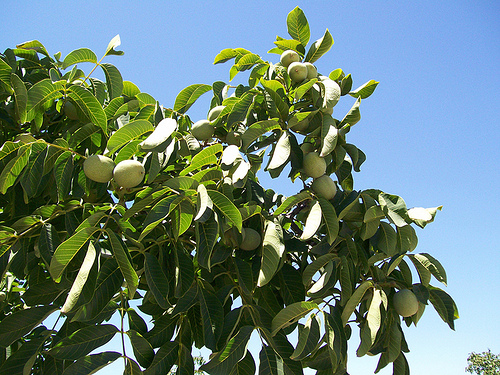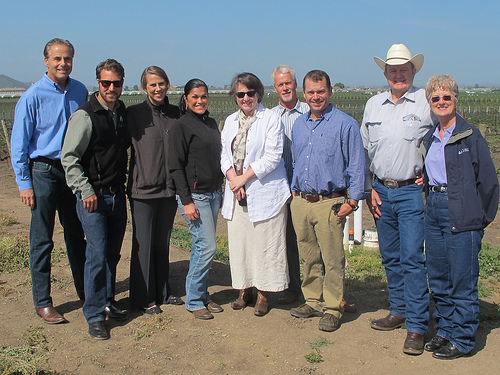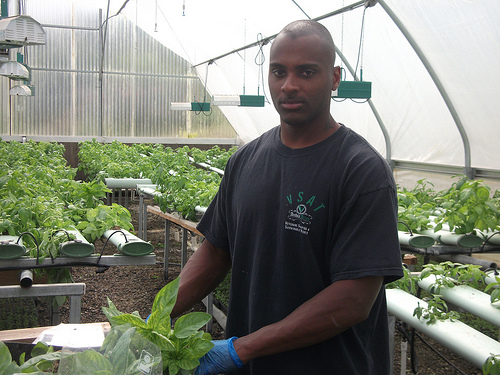This post is part of the Science Tuesday feature series on the USDA blog. Check back each week as we showcase stories and news from USDA’s rich science and research profile.
Organic agriculture is proving itself to be a veritable cornucopia, according to the results of the first-ever report on certified USDA organic production, which we released earlier this month. While the number of organic farms is a fraction of its conventional counterpart, an organically produced version of virtually every crop or animal product is now available in the United States.
This was the first time the National Agricultural Statistics Service (NASS) conducted this survey, which means that we cannot see trends yet, but we can already easily see some of the impacts of organic production in the United States. From four farms in Alabama, Alaska or Delaware to 1,898 farms in California, every state in the nation is now home to USDA-certified organic producers. And while these farmers make up less than a half of one percent of all U.S. farmers, they already sell more than $3.5 billion worth of agricultural products. Read more »

Reece Latron uses a tractor to carry baskets of greens harvested from Amy's Organic Garden in Charles City, VA. While the certification system is rigorous to ensure integrity of the USDA organic label, thousands of producers and handlers continue to invest in these activities to market their products as organic. USDA Photos by Lance Cheung
The USDA organic label is backed by a certification system that verifies farmers or handling facilities located anywhere in the world comply with the USDA Organic Regulations. Certification entails five steps: Read more »

To protect the integrity of the organic industry and its products, farms must certify that their operations are following USDA organic regulations. The USDA’s Agricultural Marketing Service offers farms resources to help offset the certification costs.
Annual organic certification fees allow certifiers to carry out their responsibilities. These fees vary according to an operation’s size and other variables. In light of that, the USDA organic cost share programs help to ensure that these costs don’t discourage those wanting to pursue organic certification. The programs make certification more affordable by reimbursing producers and handlers for as much as 75%—up to a maximum of $750 a year—for their certification costs. Eligible costs include application fees, inspection fees, travel for certification inspectors, and even postage. Read more »
This is the sixth installment of the Organic 101 series that explores different aspects of the USDA organic regulations.
The National Organic Standards Board (NOSB) is made up of dedicated public volunteers appointed by the Secretary of Agriculture. It advises the National Organic Program (NOP), a part of the Agricultural Marketing Service (AMS), on what substances should be allowed or prohibited in organic agriculture and recommends standards, policies, or guidance to help shape the organic regulations and the organic certification process. Read more »

Deputy Secretary Kathleen Merrigan tours Driscoll’s Cassin Ranch in Watsonville, Calif on May 18.
Last Friday I visited Watsonville, California. As people know, I like to get outside the Beltway and visit with people to see how USDA programs are working. My first stop was Driscoll’s Cassin Ranch, the site of the company’s plant breeding program. We had a roundtable discussion about the many water management challenges faced in the Pajaro Valley watershed. The Pajaro Valley aquifer, like too many others, is over-drafted and saltwater is intruding into the groundwater. But action is being taken. The Pajaro Valley Community Water Dialogue, a multi-stakeholder forum, is engaged in a series of managed aquifer recharge projects. Not only does Driscoll’s participate in the Dialogue, but on its own, the company is also creating a new water monitoring process that is sure to improve irrigation efficiency amongst its growers. Following our roundtable, I joined Carmela Beck (to my left) and others on a tour of the Bokariza recharge project. Carmela is a member of the USDA National Organic Standards Board and is the manager of Driscoll’s national organic program. Read more »

: A veteran and participant of the Veterans Sustainable Agriculture Training program handles living basil at an organic hydroponic farm, which grows plants in water as opposed to soil. The program, started by decorated Marine sergeant Colin Archipley, passes on agricultural knowledge to veterans to not only provide healing through farming but also to support them in starting their own agricultural enterprises.
Compost tea (a mixture of recycled organic matter soaked in water), hydroponic living basil, and organic certification are terms that, at first glance, may not have much of a connection to military veterans. Colin Archipley, a decorated Marine sergeant, and his wife Karen however saw the combination as a win-win when they founded the Veterans Sustainable Agriculture Training (VSAT) program outside San Diego, California. Read more »




